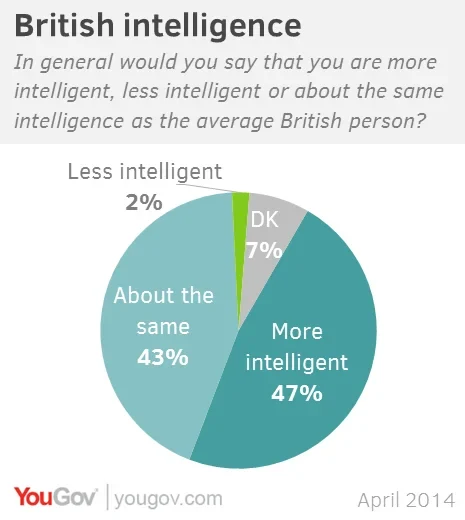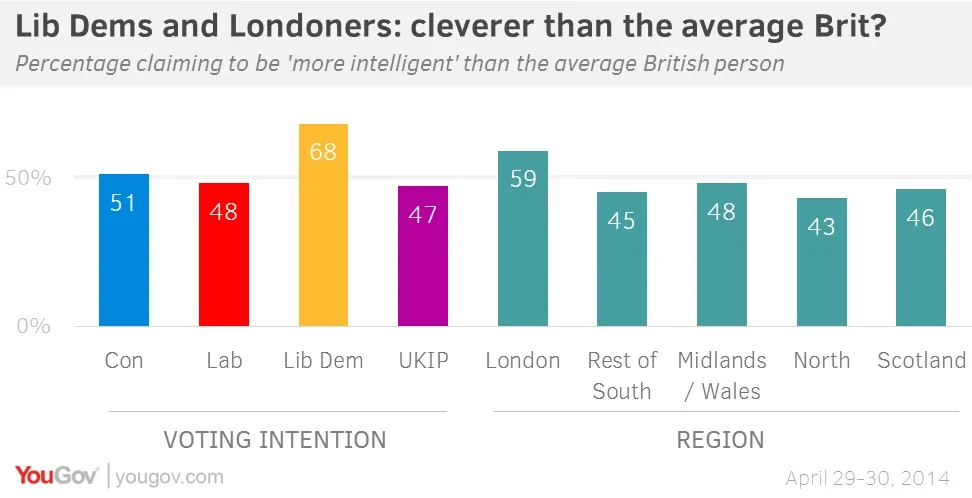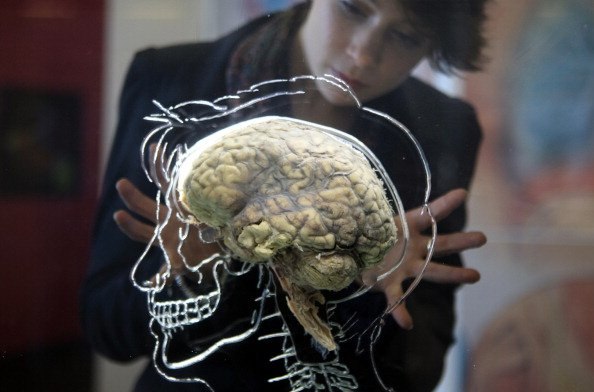The vast majority of British people think they are at least of average intelligence, but some groups are more likely to think they are cleverer
Talking about IQ on the individual or national level is notoriously tricky business, not least because research inevitably produces results that puts someone, or some group, on the lower end of the spectrum. Just last November, London Mayor Boris Johnson was criticized for saying that “16% of our species have an IQ below 85” while just 2% had more than 130 and that IQ needed to be accounted for in discussions about inequality. People protested for a number of reasons – Deputy Prime Minister Nick Clegg accused the mayor of “careless elitism”, and others disputed his numbers – but there were few signs the “16%” were out there and ready to speak out for themselves.

New research from YouGov finds one possible explanation for the silence: virtually no one (2%, to be exact) thinks that they are below average intelligence. The rest of the population are split between those who think they are more intelligent than the national average (47%) and those who think they are about average (43%). 7% aren’t sure where they stand.
Interestingly, certain groups in British society were much more likely to rate their intelligence highly than others. In the political realm, UKIP, Labour and Conservative voters all more or less match the national total for this metric (47%), but nearly seven in ten (68%) Liberal Democrats think they are cleverer than the average. Similarly, at 59%, Londoners are more likely than people in other regions to think they are above average.

Another major difference appeared when looking at social grade. Only 36% of working-class (C2DE) adults consider themselves to be above average intelligence, compared to 56% of middle class (ABC1) adults.
There is some evidence that Lib Dems and Londoners may be onto something. In 2008, one study that tested the IQ of children in the 1970s and caught up with them later in life found that, "people with a higher intelligence in childhood were more likely to vote as adults, and were more likely to vote for the Green Party and Liberal Democrats in a general election". A separate study conducted by a researcher at the University of Ulster put London and the South East at the top of a UK regional league table of IQ scores.
Image via Getty








